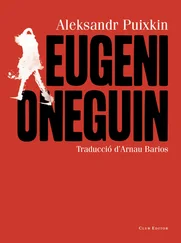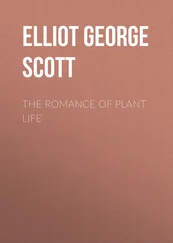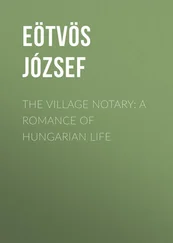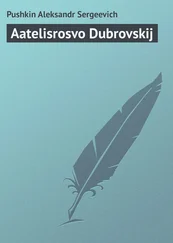Aleksandr Pushkin - Eugene Oneguine [Onegin]. A Romance of Russian Life in Verse
Здесь есть возможность читать онлайн «Aleksandr Pushkin - Eugene Oneguine [Onegin]. A Romance of Russian Life in Verse» весь текст электронной книги совершенно бесплатно (целиком полную версию без сокращений). В некоторых случаях можно слушать аудио, скачать через торрент в формате fb2 и присутствует краткое содержание. Год выпуска: 2007, Жанр: Поэзия, на английском языке. Описание произведения, (предисловие) а так же отзывы посетителей доступны на портале библиотеки ЛибКат.
- Название:Eugene Oneguine [Onegin]. A Romance of Russian Life in Verse
- Автор:
- Жанр:
- Год:2007
- ISBN:нет данных
- Рейтинг книги:4 / 5. Голосов: 1
-
Избранное:Добавить в избранное
- Отзывы:
-
Ваша оценка:
- 80
- 1
- 2
- 3
- 4
- 5
Eugene Oneguine [Onegin]. A Romance of Russian Life in Verse: краткое содержание, описание и аннотация
Предлагаем к чтению аннотацию, описание, краткое содержание или предисловие (зависит от того, что написал сам автор книги «Eugene Oneguine [Onegin]. A Romance of Russian Life in Verse»). Если вы не нашли необходимую информацию о книге — напишите в комментариях, мы постараемся отыскать её.
Eugene Oneguine [Onegin]. A Romance of Russian Life in Verse — читать онлайн бесплатно полную книгу (весь текст) целиком
Ниже представлен текст книги, разбитый по страницам. Система сохранения места последней прочитанной страницы, позволяет с удобством читать онлайн бесплатно книгу «Eugene Oneguine [Onegin]. A Romance of Russian Life in Verse», без необходимости каждый раз заново искать на чём Вы остановились. Поставьте закладку, и сможете в любой момент перейти на страницу, на которой закончили чтение.
Интервал:
Закладка:
XVIII
"Alack! Tattiana," she replied,
"We never loved in days of old,
My mother-in-law who lately died [36] A young married couple amongst Russian peasants reside in the house of the bridegroom's father till the "tiaglo," or family circle is broken up by his death.
Had killed me had the like been told."
"How came you then to wed a man?"—
"Why, as God ordered! My Ivan
Was younger than myself, my light,
For I myself was thirteen quite; [37] Marriages amongst Russian serfs used formerly to take place at ridiculously early ages. Haxthausen asserts that strong hearty peasant women were to be seen at work in the fields with their infant husbands in their arms. The inducement lay in the fact that the "tiaglo" (see previous note) received an additional lot of the communal land for every male added to its number, though this could have formed an inducement in the southern and fertile provinces of Russia only, as it is believed that agriculture in the north is so unremunerative that land has often to be forced upon the peasants, in order that the taxes, for which the whole Commune is responsible to Government, may be paid. The abuse of early marriages was regulated by Tsar Nicholas.
The matchmaker a fortnight sped,
Her suit before my parents pressing:
At last my father gave his blessing,
And bitter tears of fright I shed.
Weeping they loosed my tresses long [38] Courtships were not unfrequently carried on in the larger villages, which alone could support such an individual, by means of a "svakha," or matchmaker. In Russia unmarried girls wear their hair in a single long plait or tail, "kossa;" the married women, on the other hand, in two, which are twisted into the head-gear.
And led me off to church with song."
XIX
"Then amongst strangers I was left—
But I perceive thou dost not heed—"
"Alas! dear nurse, my heart is cleft,
Mortally sick I am indeed.
Behold, my sobs I scarce restrain—"
"My darling child, thou art in pain.—
The Lord deliver her and save!
Tell me at once what wilt thou have?
I'll sprinkle thee with holy water.—
How thy hands burn!"—"Dear nurse, I'm well.
I am—in love—you know—don't tell!"
"The Lord be with thee, O my daughter!"—
And the old nurse a brief prayer said
And crossed with trembling hand the maid.
XX
"I am in love," her whispers tell
The aged woman in her woe:
"My heart's delight, thou art not well."—
"I am in love, nurse! leave me now."
Behold! the moon was shining bright
And showed with an uncertain light
Tattiana's beauty, pale with care,
Her tears and her dishevelled hair;
And on the footstool sitting down
Beside our youthful heroine fair,
A kerchief round her silver hair
The aged nurse in ample gown, [39] It is thus that I am compelled to render a female garment not known, so far as I am aware, to Western Europe. It is called by the natives "doushegreika," that is to say, "warmer of the soul"—in French, chaufferette de l'ame. It is a species of thick pelisse worn over the "sarafan," or gown.
Whilst all creation seemed to dream
Enchanted by the moon's pale beam.
XXI
But borne in spirit far away
Tattiana gazes on the moon,
And starting suddenly doth say:
"Nurse, leave me. I would be alone.
Pen, paper bring: the table too
Draw near. I soon to sleep shall go—
Good-night." Behold! she is alone!
'Tis silent—on her shines the moon—
Upon her elbow she reclines,
And Eugene ever in her soul
Indites an inconsiderate scroll
Wherein love innocently pines.
Now it is ready to be sent—
For whom, Tattiana, is it meant?
XXII
I have known beauties cold and raw
As Winter in their purity,
Striking the intellect with awe
By dull insensibility,
And I admired their common sense
And natural benevolence,
But, I acknowledge, from them fled;
For on their brows I trembling read
The inscription o'er the gates of Hell
"Abandon hope for ever here!" [40] A Russian annotator complains that the poet has mutilated Dante's famous line.
Love to inspire doth woe appear
To such—delightful to repel.
Perchance upon the Neva e'en
Similar dames ye may have seen.
XXIII
Amid submissive herds of men
Virgins miraculous I see,
Who selfishly unmoved remain
Alike by sighs and flattery.
But what astonished do I find
When harsh demeanour hath consigned
A timid love to banishment?—
On fresh allurements they are bent,
At least by show of sympathy;
At least their accents and their words
Appear attuned to softer chords;
And then with blind credulity
The youthful lover once again
Pursues phantasmagoria vain.
XXIV
Why is Tattiana guiltier deemed?—
Because in singleness of thought
She never of deception dreamed
But trusted the ideal she wrought?—
Because her passion wanted art,
Obeyed the impulses of heart?—
Because she was so innocent,
That Heaven her character had blent
With an imagination wild,
With intellect and strong volition
And a determined disposition,
An ardent heart and yet so mild?—
Doth love's incautiousness in her
So irremissible appear?
XXV
O ye whom tender love hath pained
Without the ken of parents both,
Whose hearts responsive have remained
To the impressions of our youth,
The all-entrancing joys of love—
Young ladies, if ye ever strove
The mystic lines to tear away
A lover's letter might convey,
Or into bold hands anxiously
Have e'er a precious tress consigned,
Or even, silent and resigned,
When separation's hour drew nigh,
Have felt love's agitated kiss
With tears, confused emotions, bliss,—
XXVI
With unanimity complete,
Condemn not weak Tattiana mine;
Do not cold-bloodedly repeat
The sneers of critics superfine;
And you, O maids immaculate,
Whom vice, if named, doth agitate
E'en as the presence of a snake,
I the same admonition make.
Who knows? with love's consuming flame
Perchance you also soon may burn,
Then to some gallant in your turn
Will be ascribed by treacherous Fame
The triumph of a conquest new.
The God of Love is after you!
XXVII
A coquette loves by calculation,
Tattiana's love was quite sincere,
A love which knew no limitation,
Even as the love of children dear.
She did not think "procrastination
Enhances love in estimation
And thus secures the prey we seek.
His vanity first let us pique
With hope and then perplexity,
Excruciate the heart and late
With jealous fire resuscitate,
Lest jaded with satiety,
The artful prisoner should seek
Incessantly his chains to break."
Интервал:
Закладка:
Похожие книги на «Eugene Oneguine [Onegin]. A Romance of Russian Life in Verse»
Представляем Вашему вниманию похожие книги на «Eugene Oneguine [Onegin]. A Romance of Russian Life in Verse» списком для выбора. Мы отобрали схожую по названию и смыслу литературу в надежде предоставить читателям больше вариантов отыскать новые, интересные, ещё непрочитанные произведения.
Обсуждение, отзывы о книге «Eugene Oneguine [Onegin]. A Romance of Russian Life in Verse» и просто собственные мнения читателей. Оставьте ваши комментарии, напишите, что Вы думаете о произведении, его смысле или главных героях. Укажите что конкретно понравилось, а что нет, и почему Вы так считаете.











